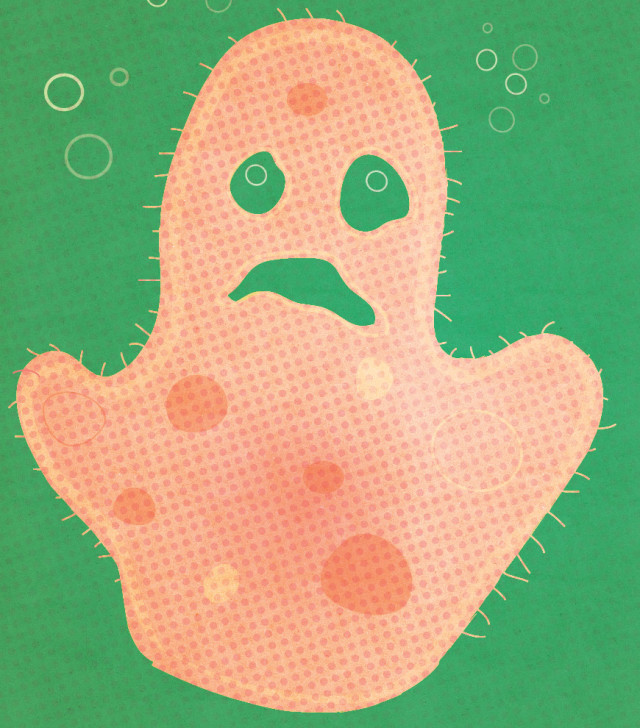Zombie Vaccines! How PSU Is Leveraging Undead Viruses to Cure Diseases

Image: Amy Martin
Virologists at Portland State University weren’t necessarily trying to create zombie viruses. But in a lab experiment gone happily awry, they discovered how to “kill” viruses by coating them in silica, a glasslike substance, and then bring them back to life.
The first scene of a global-plague thriller? One might think. But consider that many vaccines are made from weakened viruses that must be refrigerated to remain effective. Globally, about 50 percent of vaccines spoil in transport. Meanwhile, six million people die from vaccine-preventable diseases globally every year. But if temporarily entombed in silica, vaccine viruses could be transported and stored without refrigeration—potentially a major boon for the developing world.
Jim Laidler, a grad student in Ken Stedman’s lab at PSU’s Center for Life in Extreme Environments, coined the cheeky “zombie virus” name. While researching the origin of viral organisms, Stedman’s team examined viruses fossilized in hot springs, where superheated water leeches silica from below the surface. They re-created hot-spring conditions in their lab. Within a few days, the viruses they’d inserted seemed to have been neutralized.
“Jim thought maybe if the viruses get coated in silica, they’re somehow stabilized,” Stedman says. In a paper published in late 2013, the research team showed just that: in silica, viruses effectively go into a sort of suspended animation. When the coating is removed, they reactivate. Stedman’s team, working with Providence Cancer Center, found that injecting mice with silica-coated viruses triggers an immune response. “The silica coating appears to come off in the bloodstream,” Stedman says. This insight could open the door to shelf-stable vaccines for diseases ranging from influenza to measles to Ebola.
Only a minuscule amount of silica would be used in human inoculations, adding just pennies to costs while potentially saving billions of dollars in waste—and, far more important, millions of lives.




